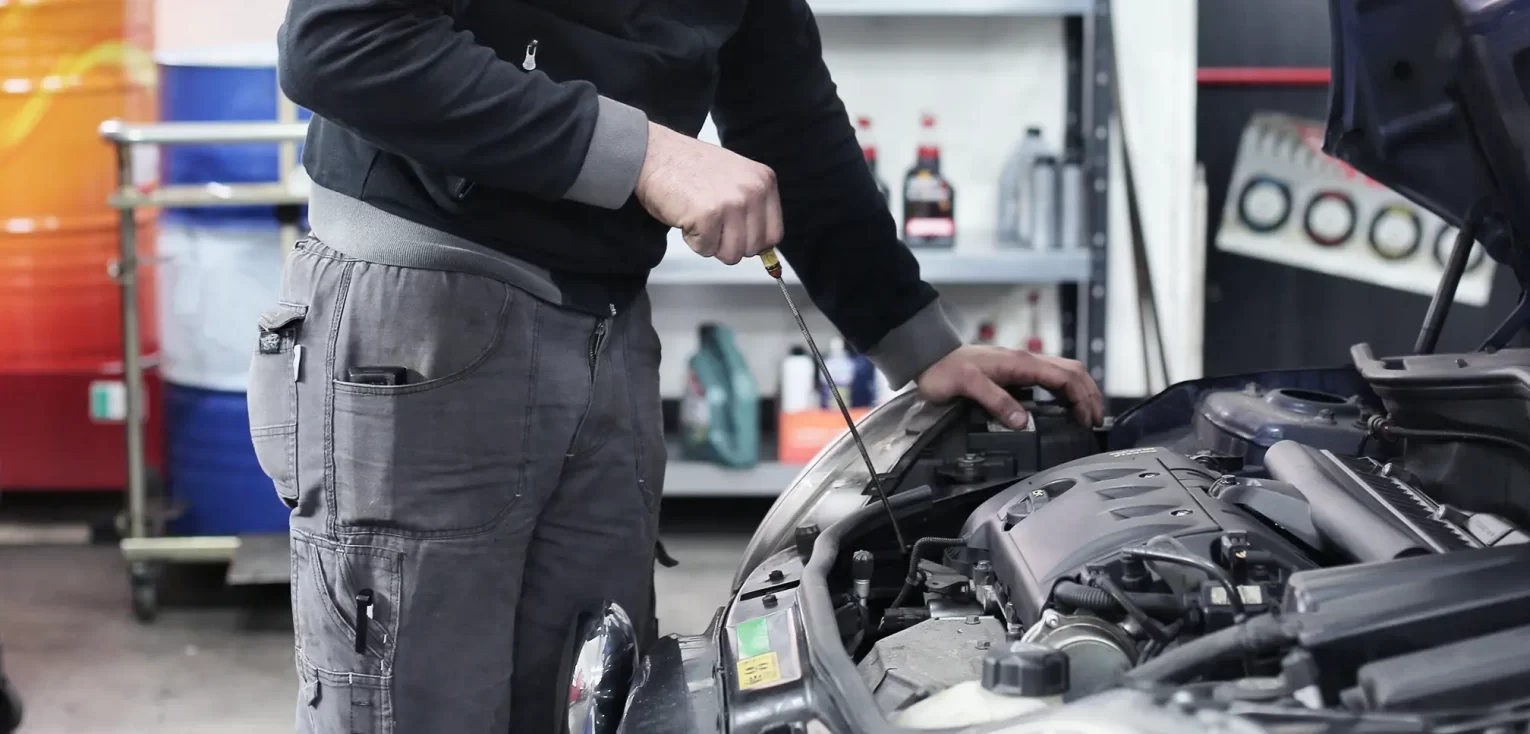Every car is different, and every car will have different maintenance needs. There are, however, some general maintenance tips you can follow to keep your car running smoothly. Below is a list of 10 general maintenance tips to preserve the life of your vehicle and to protect you from having to make expensive repairs.
Tip #1: Check Your Fluids Regularly
From the motor oil that provides lubrication to your engine, to brake fluid that helps control your speed, your car comes with all sorts of important fluids that keep it running. Each fluid has a different lifespan, and each one should be checked at regular intervals to maintain your vehicle’s health and safety. Most fluids can be checked under the hood, but some are located in other areas on your vehicle. Keeping up with your car’s fluids can help you to avoid costly repairs down the road. You can also detect any leaks before they become a bigger issue. For specifics on which fluids your car uses and how often they should be changed, check your owner’s manual.
Tip #2: Check Your Tires
Tires are a necessary part of your vehicle. Tires that are well-maintained can help you to drive safer and more fuel-efficiently than tires that are neglected. To extend the life of your tires, check the pressure and tread depth once a month. Tire pressure can change in colder months, so it’s especially important to keep an eye on your tires in the winter. By regularly checking the pressure and tread depth, you can ensure that your vehicle is properly aligned (uneven tread depth can be a sign that you need an alignment). It’s also a good idea to have your tires rotated every 5,000 to 7,000 miles or every 6 months. All of these things can help you get the best use of your tires.
Tip #3: Check All the Lights on Your Vehicle
Just like the fluids, your car also comes with a lot of lights. Headlights, turn signals, brake lights, fog lights, and parking lights all help to keep you safe when you’re on the road. It’s a good idea to check your lights on a monthly basis. You can do this by parking your car, turning on each light, and checking them one by one. For brake lights, grab a friend and ask them to watch the back of your car to see if they’re working.
Tip #4: Check Your Battery
Your vehicle’s battery provides electricity to your starter, your engine, and other accessories. Without a properly working battery, you won’t get very far. There are three main things that should be checked when it comes to your battery: performance, connection, and cables. If there is any visible corrosion on your battery, or if your battery fails any one of those three checks, it’s time for a replacement or a repair. In general, batteries should be tested after 3 years and replaced after 5 years.
Tip #5: Check Your Brakes
If you’ve ever driven a car, you know the brake system is vitally important. There are a lot of parts to the brake system, and they can all wear down over time. To maintain your brake system’s health, regularly check the brake fluid, brake linings, rotors, and brake pads. Catching a problem with your brakes early—like a leak in your brake fluid or a worn-down brake pad—can help to protect your rotors, preserve your vehicle alignment, and keep you safe in dangerous conditions. It’s a good idea to check your brakes after every 10,000 miles or any time you have your oil changed.
Tip #6: Check Your Engine Filter
Your car’s engine filter protects your engine’s combustion chamber from dust, dirt, and other debris you pick up while driving. This allows your engine to function properly, improving your vehicle’s fuel efficiency and maintaining its performance. Over time, your filter will clog up with the dirt and debris it’s keeping out of the engine. To maintain vehicle performance and keep your engine running smoothly, check your engine filter every 6 months. You should change the filter once a year, or every 12,000 miles.
Tip #7: Check Your Belts and Hoses
There are several belts and hoses in your vehicle. Like everything else, these belts and hoses can wear out over time, especially when exposed to extreme temperatures. Some vehicles have a rubber timing belt and others have a steel timing chain. The timing belt or timing chain helps your engine run. Your car also has a serpentine belt, which powers things like your power steering pump, your air conditioning, and your alternator. Timing belts and serpentine belts can both last for 50,000 miles or more but should be checked at regular intervals for cracks or other signs of wear. (Timing chains typically last longer than timing belts but should also be checked regularly.) Your car’s hoses connect to things like climate control systems, fuel lines, and power steering. Similar to the belts, hoses are usually made of rubber. These should also be regularly checked for cracks, bulges, and leaks.
Tip #8: Check Your Spark Plugs
Spark plugs are an important component in your vehicle, especially when it comes to starting the engine. If they stop working, your engine will lose power and fuel efficiency. The amount of spark plugs in a vehicle will differ depending on the type of engine, and not every spark plug needs to be changed at the same time. A good general rule of thumb is to change your spark plugs somewhere between 20,000 and 50,000 miles. For specifics on your car’s spark plugs, consult your owner’s manual.
Tip #9: Check Your Shocks and Struts
Your shocks and struts are part of your car’s suspension. They help to control and absorb the bumps you pass over while driving. Shocks and struts also have a major impact on your steering system. Both of these parts can wear down over time and may result in a bumpy ride. It’s a good idea to inspect your shocks and struts every 50,000 miles.
Tip #10: Wash and Wax Your Car Regularly
This last tip may not seem like much of a maintenance tip, but you might be surprised. Your car is going to pick up dirt and debris from the road, no matter how carefully you drive. If you live in Pennsylvania, you’re also going to encounter road salt in the winter, rain in the summer, and other, unexpected elements as the seasons change. Washing your car on a regular basis can help to preserve the paint, and waxing it every 6 months (after a wash) can help you avoid costly rust repairs.
Call Restored Auto LLC for help with your vehicle maintenance.
Whether you’ve got a leaky hose, a broken belt, or you just want to measure your battery’s performance, Restored Auto LLC can help. We will work with you to service your vehicle on a regular basis, and to check things like your tires, your fluid levels, your battery performance, your belts, and more. Give us a call today for help with your vehicle maintenance.

